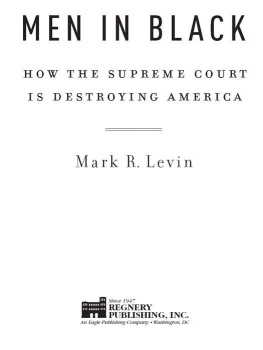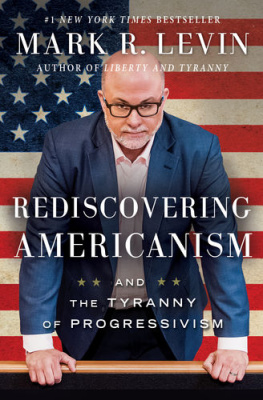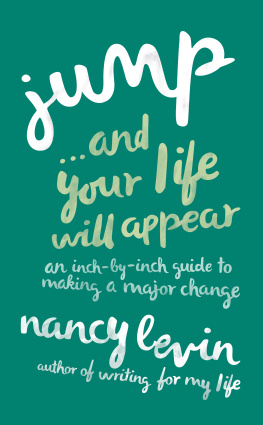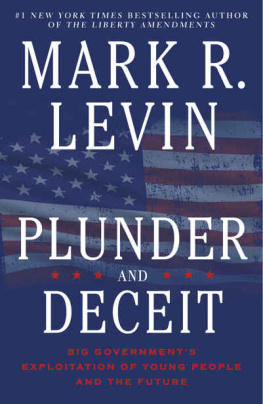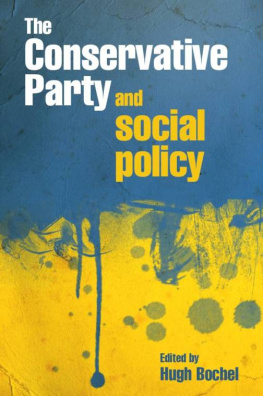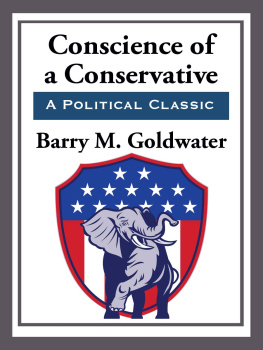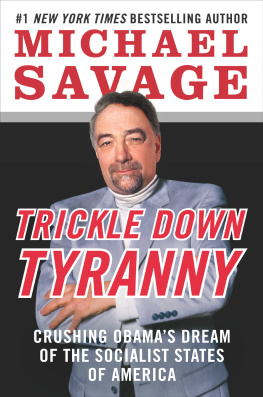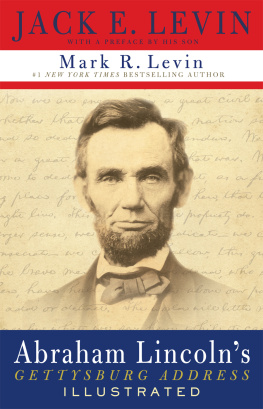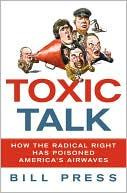Copyright 2009 by Mark R. Levin
All rights reserved, including the right to reproduce this book or portions thereof in any form whatsoever.
For information address Threshold Editions Subsidiary Rights Department, 1230 Avenue of the Americas, New York, NY 10020
THRESHOLD EDITIONS and colophon are trademarks of Simon & Schuster, Inc.
The Simon & Schuster Speakers Bureau can bring authors to your live event. For more information or to book an event contact the Simon & Schuster Speakers Bureau at 866-248-3049 or visit our website at www.simonspeakers.com.
O N L IBERTY AND T YRANNY
T HERE IS SIMPLY NO scientific or mathematical formula that defines conservatism. Moreover, there are competing voices today claiming the mantle of true conservatismincluding neo-conservatism (emphasis on a robust national security), paleo-conservatism (emphasis on preserving the culture), social conservatism (emphasis on faith and values), and libertarianism (emphasis on individualism), among others. Scores of scholars have written at length about what can be imperfectly characterized as conservative thought. But my purpose is not to give them each exposition, as it cannot be fairly or adequately accomplished here, nor referee among them. Neither will I attempt to give birth to totally new theories.
Instead, what follows are my own opinions and conclusions of fundamental truths, based on decades of observation, exploration, and experience, about conservatism and, conversely, nonconservatismthat is, liberty and tyranny in modern America.
To put it succinctly: Conservatism is a way of understanding life, society, and governance. The Founders were heavily influenced by certain philosophers, among them Adam Smith (spontaneous order), Charles Montesquieu (separation of powers), and especially John Locke (natural rights); they were also influenced by their faiths, personal experiences, and knowledge of history (including the rise and fall of the Roman Empire). Edmund Burke, who was both a British statesman and thinker, is often said to be the father of modern conservatism. He was an early defender of the American Revolution and advocate of representative government. He wrote of the interconnection of liberty, free markets, religion, tradition, and authority. The Conservative, like the Founders, is informed by all these great thinkersand more.
The Declaration of Independence represents the most prominent, official, consensus position of the Founders rationale for declaring independence from England. It states, in part,
When in the Course of human events it becomes necessary for one people to dissolve the political bands which have connected them with another and to assume among the powers of the earth, the separate and equal station to which the Laws of Nature and of Natures God entitle them, a decent respect to the opinions of mankind requires that they should declare the causes which impel them to the separation. We hold these truths to be self-evident, that all men are created equal, that they are endowed by their Creator with certain unalienable Rights, that among these are Life, Liberty and the pursuit of Happiness.
The Founders believed, and the Conservative agrees, in the dignity of the individual; that we, as human beings, have a right to live, live freely, and pursue that which motivates us not because man or some government says so, but because these are God-given natural rights.
Like the Founders, the Conservative also recognizes in society a harmony of interests, as Adam Smith put it, and rules of cooperation that have developed through generations of human experience and collective reasoning that promote the betterment of the individual and society. This is characterized as ordered liberty, the social contract, or the civil society .
What are the conditions of this civil society?
In the civil society, the individual is recognized and accepted as more than an abstract statistic or faceless member of some group; rather, he is a unique, spiritual being with a soul and a conscience. He is free to discover his own potential and pursue his own legitimate interests, tempered, however, by a moral order that has its foundation in faith and guides his life and all human life through the prudent exercise of judgment. As such, the individual in the civil society strives, albeit imperfectly, to be virtuousthat is, restrained, ethical, and honorable. He rejects the relativism that blurs the lines between good and bad, right and wrong, just and unjust, and means and ends.
In the civil society, the individual has a duty to respect the unalienable rights of others and the values, customs, and traditions, tried and tested over time and passed from one generation to the next, that establish societys cultural identity . He is responsible for attending to his own well-being and that of his family. And he has a duty as a citizen to contribute voluntarily to the welfare of his community through good works.
In the civil society, private property and liberty are inseparable. The individuals right to live freely and safely and pursue happiness includes the right to acquire and possess property, which represents the fruits of his own intellectual and/or physical labor. As the individuals time on earth is finite, so, too, is his labor. The illegitimate denial or diminution of his private property enslaves him to another and denies him his liberty.
In the civil society, a rule of law , which is just, known, and predictable, and applied equally albeit imperfectly, provides the governing framework for and restraints on the polity, thereby nurturing the civil society and serving as a check against the arbitrary use and, hence, abuse of power.
For the Conservative, the civil society has as its highest purpose its preservation and improvement.
The Modern Liberal believes in the supremacy of the state, thereby rejecting the principles of the Declaration and the order of the civil society, in whole or part. For the Modern Liberal, the individuals imperfection and personal pursuits impede the objective of a utopian state. In this, Modern Liberalism promotes what French historian Alexis de Tocqueville described as a soft tyranny , which becomes increasingly more oppressive, potentially leading to a hard tyranny (some form of totalitarianism). As the word liberal is, in its classical meaning, the opposite of authoritarian, it is more accurate, therefore, to characterize the Modern Liberal as a Statist .



